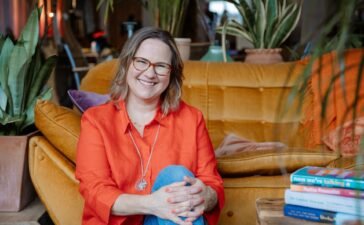By Dr Bisi Laniyan – Sage Clinics
We’ve been taught for decades that success comes from doing more, being available constantly, and powering through, especially as women. But the truth is, what got us here isn’t sustainable anymore. Burnout is real, and it’s quietly draining women everywhere. So, when the UAE started leaning into the idea of a four-day workweek, many of us took a breath and thought, “Finally.”

This isn’t just a trendy workplace experiment. It’s a step toward rebalancing the mental and emotional overload so many women carry, often invisibly.
Let’s start with what the data says. Sharjah’s shift to a four-day government workweek has already shown encouraging results. Productivity has gone up. Absenteeism is down. Families are seeing each other more. That’s not fluff. It’s real progress. And for the many women managing both careers and households, this shift offers something powerful: breathing room.
Burnout doesn’t always announce itself with a dramatic crash. For most women, it arrives quietly. It looks like snapping at your kids over small things, dragging yourself through tasks you used to enjoy, or staying up too late just to get a moment of silence. It feels like constantly being needed but never really feeling present. And while you may appear composed on the outside, internally, there’s a growing sense of depletion.
That’s the emotional tax of always being “on.” And in fast-paced environments like the UAE, where professional ambition and social obligations often overlap, the lines between work and life blur quickly. Add cultural expectations, extended family roles, and often limited support systems, and what you get is a silent mental load that is rarely acknowledged.
This is why the four-day work week matters. It’s not just about having an extra day off. It’s about creating space to recover, reflect, and recalibrate. When women have time to reconnect with themselves, their focus sharpens. Their leadership becomes more intentional. Their relationships deepen. Time off doesn’t subtract from performance. It multiplies it.
It also challenges the outdated belief that output equals hours logged. We know that isn’t true. Women are already masters of efficiency. We manage timelines, meetings, school drop-offs, doctor appointments, and everything in between. The goal isn’t to work less. It’s to work better, with more clarity and less emotional residue.
This isn’t about softness. It’s about strategy. A well-rested mind makes sharper decisions. A less-stretched body holds boundaries more confidently. And a more grounded woman becomes a more powerful force in every area of life.
Of course, making a shorter work week in practice takes intention. It’s not about squeezing five days into four. It requires companies to rethink how they define success. It means managers must focus on outcomes, not hours. And it means trusting employees, especially women, to know how to manage their time and energy in ways that create long-term value.
The UAE has always been a place that moves quickly and thinks boldly. The four-day week conversation is part of that boldness. It reflects an understanding that progress isn’t just about technology and infrastructure. It’s also about people. Especially the women holding it all together.
So, when we advocate for a new way of working, we’re not asking for less. We’re asking for more of what actually matters. More space. More clarity. More energy to lead, build, and live. Not just survive the week. And that is the kind of shift that changes everything.
You can find out more about Dr Bisi Laniyan and the team at Sage Clinics: here. For more information about the services Sage Clinics offers or to book an appointment please contact +971 4 575 5684, at appointments@sage-clinics.com or through the chat function in the bottom right corner of the website.








